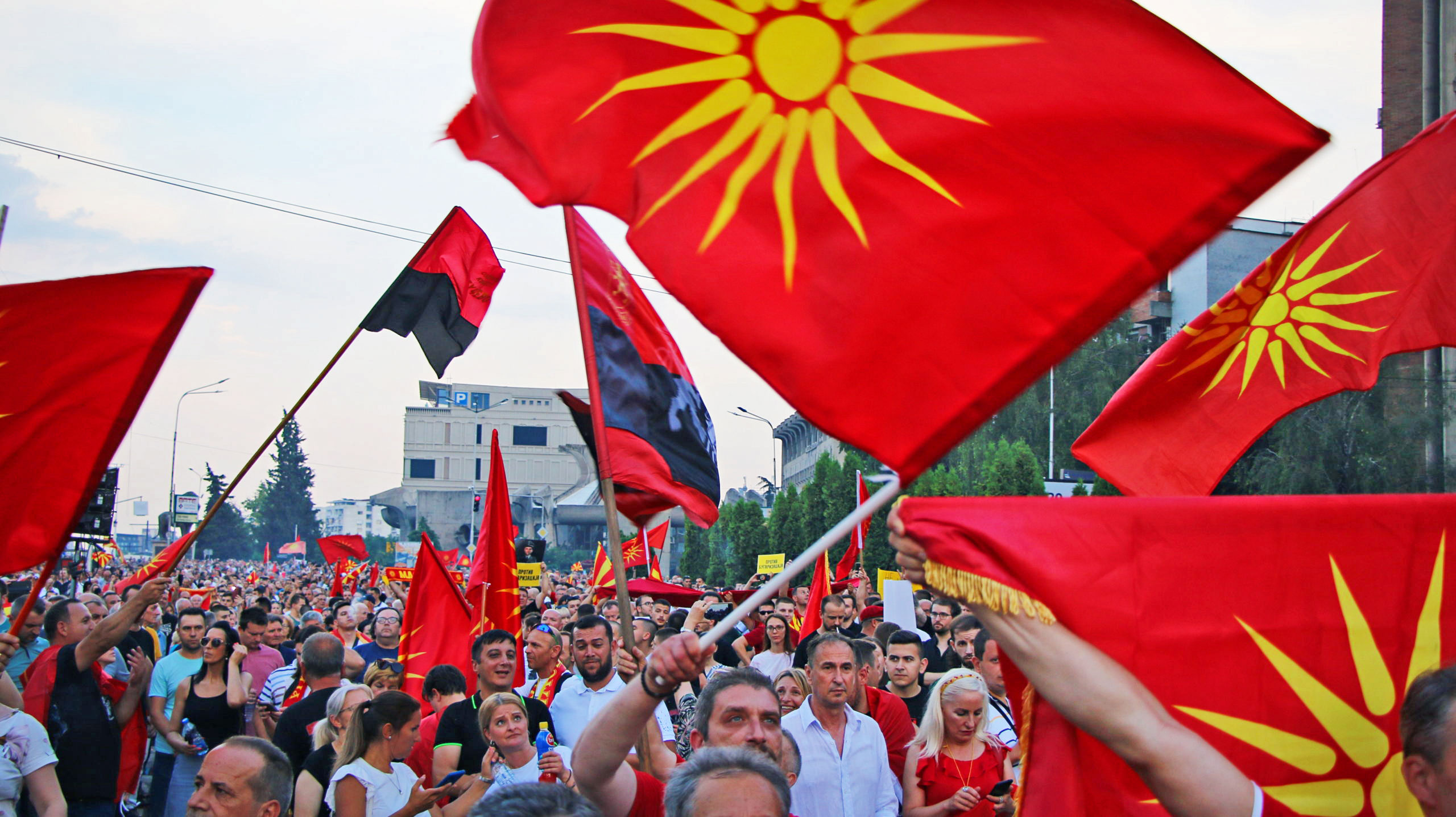The juggernaut of EU expansion is picking up steam in the Western Balkans. The path to EU accession for North Macedonia and Albania was potentially cleared after the former agreed to a proposal to defuse tensions with EU member Bulgaria. But could the dangled carrot of EU membership actually be the cause, rather than the remedy, of instability?
Bulgaria has obstructed North Macedonia’s accession negotiations for years because Sofia is sceptical about its smaller neighbour’s claims to a separate history and culture. Official policy says the North Macedonian language doesn’t exist (that it is merely a dialect of Bulgarian), and that North Macedonians are Bulgarians brainwashed into believing in a separate identity by “ethnic and linguistic engineering” under Tito’s Communist regime.
It’s impossible to miss the similarities with Russian arguments against Ukrainian statehood. But the EU is green-lighting Bulgaria’s claims, proposing a deal which will force North Macedonia to enshrine reference to Bulgarians in its constitution, which also leaves Bulgaria free to keep rejecting the existence of the Macedonian language. North Macedonia’s former deputy prime minister said the proposal gives Bulgaria “control over our destiny,” while the leader of the opposition said the deal means “we will assimilate, Bulgarianise, or will never be part of the EU.”
Narrow approval from the Bulgarian parliament and the North Macedonian government can’t hide the deal’s potential to blow up regional tensions. Bulgaria’s stance is so strong that the country’s pro-EU prime minister Kiril Petkov was last month forced to resign for being willing to countenance North Macedonian EU accession at all. Petkov acknowledges the “big risk” of the Macedonian government also imploding because of the deal, with a two-third parliamentary majority needed to pass the required constitutional amendment.
Surveying the wreckage, European Council President Charles Michel buoyantly remarked that “we are the closest we have ever been: now is the time to say yes”. The bloc’s attitude has changed markedly since French President Emmanuel Macron led a group of countries in blocking North Macedonia’s accession in 2019, citing a failure to implement necessary reforms while suggesting fundamental problems with the “vision” of EU enlargement.
The provocative nature of membership negotiations is clearer still in Serbia, where the EU has begun insisting on recognition for Kosovo as a prerequisite for accession in light of Russia’s revanchist ambitions against Ukraine. On a visit to Belgrade last month, German Chancellor Olaf Scholz said “an agreement must ultimately clear up the question of the recognition of Kosovo, because it is not conceivable that two countries that don’t recognise each other become members of the EU.”
But whatever the EU funding at stake, many Serbs will simply never accept that Kosovo — which they consider a region vital to Serbia’s cultural history — is a separate country. Brussels’ tougher stance has coincided with a sharp increase in Serbian euroscepticism, with a clear majority of Serbs now against joining the EU.
The swing in public opinion has panicked strongman president Aleksandar Vučić, who has geared Serbia towards the EU economically while maintaining cordial relations with Moscow. “We have to view things rationally,” he entreated. “Can we do without Europe and its investments? We have to be reasonable enough so that our emotions don’t prevail.” But to please the home crowd, he has also escalated rhetoric against Kosovo, saying Kosovo is trying to displace ethnic Serbs.
Even Vučić, the man with an iron grip on Serbia, has therefore become trapped in an untenable political situation by EU accession talks. Rather than creating new stability, EU expansion is currently rubbing salt into wounds and stoking political chaos.










Join the discussion
Join like minded readers that support our journalism by becoming a paid subscriber
To join the discussion in the comments, become a paid subscriber.
Join like minded readers that support our journalism, read unlimited articles and enjoy other subscriber-only benefits.
Subscribe